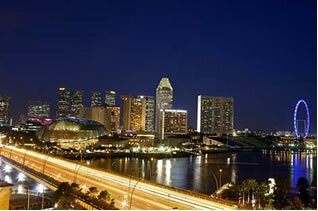The process of economic globalization was an experience that established the intensification of commercial transactions and the reduction of the borders that separated nations. In this context of acceleration, the great capitalist nations took as a practice the consolidation of agreements that make it possible to obtain raw materials and guarantee new consumer markets for products industrialized. That's how we noticed the formation of the first economic blocks in the history of capitalism.
The first block known to have been organized at the end of World War II and was made up of Belgium, Holland and Luxembourg. The BENELUX call ended up bringing advantages and was able to attract new European countries over time. With the accession of Italy, Germany and France, this first European economic bloc gave rise to the EEC, the acronym that designated the European Economic Community. In 1992, the growth of that community ended up giving rise to the European Union.
From a political and economic point of view, the creation of these first European blocs was initially intended to enable the recovery of the Old World after World War II. After that, the European blocs had the function of facing the economic power and influence of the United States and the former Soviet Union in the world economy. Over time, other blocs were also created with the aim of articulating the economy of other rising countries.
In 1988, a free trade zone integrated by the United States, Canada and Mexico was created, which was named NAFTA. Also on the American continent, Bolivia, Peru, Ecuador, Peru and Venezuela formed the so-called Andean Pact. In South America, Brazil, Argentina and Uruguay organized Mercosur. Arriving in the eastern world, the formation of economic blocs was marked by the constitution of APEC - initially composed of Japan, China, South Korea, Asian Tigers, Peru, Chile, Russia, USA, Mexico and Canada.
Do not stop now... There's more after the advertising ;)
In general terms, the economic blocks are capable of providing very interesting advantages by enabling access and lowering the cost of certain products that were previously expensive and with little supply. However, on the other hand, cooperation actions reduce the possibilities of expansion of the national economy in certain areas where partner countries have greater development. In this way, the blocks can cause unemployment and the retraction of certain industrial sectors.
Currently, the great crisis faced by the economic blocs is putting at risk these agreements that were so widely organized in the second half of the 20th century. In 2011, for example, the crisis in the European Union called into question the permanence of countries like Greece, Spain and Portugal in the same bloc. Even today, several analysts question the survival of the blocks in the international economy.
By Rainer Gonçalves Sousa
Brazil School Collaborator
Graduated in History from the Federal University of Goiás - UFG
Master in History from the Federal University of Goiás - UFG
Would you like to reference this text in a school or academic work? Look:
SOUSA, Rainer Gonçalves. "Economic blocks"; Brazil School. Available in: https://brasilescola.uol.com.br/historiag/blocos-economicos.htm. Accessed on June 27, 2021.

